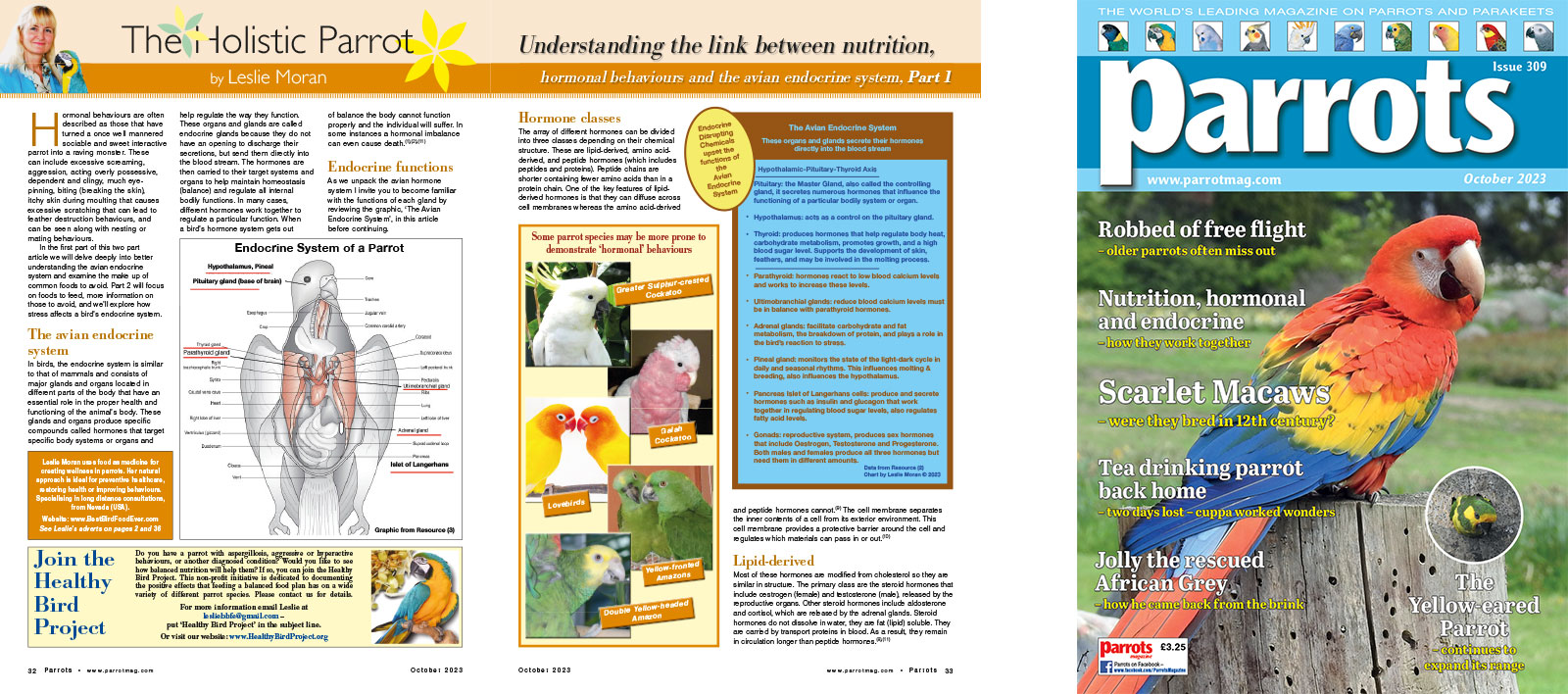
The Holistic Parrot by Leslie Moran
Hormonal behaviours are often described as those that have turned a once well mannered sociable and sweet interactive parrot into a raving monster. These can include excessive screaming, aggression, acting overly possessive, dependent and clingy, much eye-pinning, biting (breaking the skin), itchy skin during moulting that causes excessive scratching that can lead to feather destruction behaviours, and can be seen along with nesting or mating behaviours.
In the first part of this two part article we will delve deeply into better understanding the avian endocrine system and examine the make up of common foods to avoid. Part 2 will focus on foods to feed, more information on those to avoid, and we’ll explore how stress affects a bird’s endocrine system.
In birds, the endocrine system is similar to that of mammals and consists of major glands and organs located in different parts of the body that have an essential role in the proper health and functioning of the animal’s body. These glands and organs produce specific compounds called hormones that target specific body systems or organs and help regulate the way they function. These organs and glands are called endocrine glands because they do not have an opening to discharge their secretions, but send them directly into the blood stream. The hormones are then carried to their target systems and organs to help maintain homeostasis (balance) and regulate all internal bodily functions. In many cases, different hormones work together to regulate a particular function. When a bird’s hormone system gets out of balance the body cannot function properly and the individual will suffer. In some instances a hormonal imbalance can even cause death.
